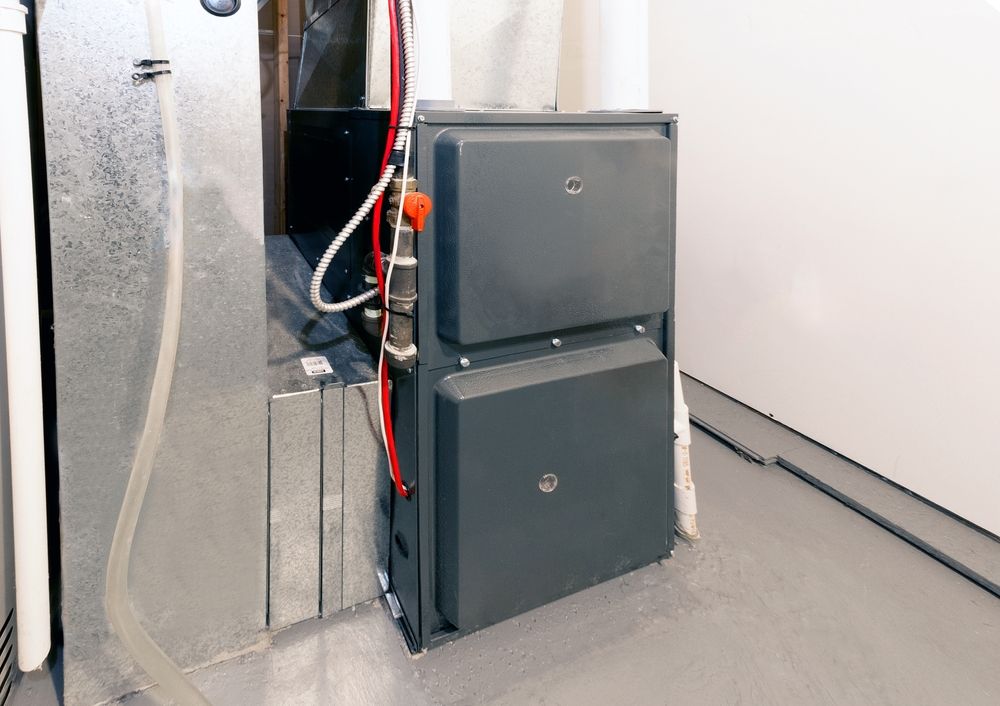
Heat Pump vs. Furnace: Which Is Right for Your Home?
Heat pumps and furnaces have the same job: heat the air in your home. However, each system differs in price, efficiency, and versatility. For some homes, there is an obvious choice between the two, and for others, the question of heat pump vs. furnace is more complex.
At Top Gun Heating & Air, we provide top-tier heat pump installations and furnace installations—let us help recommend the best heating solution for you. In the following segments, we break down the pros, cons, and features of both systems so that you know which system best fits your home’s needs.
What Is a Heat Pump?
A heat pump is a dual heating and cooling system that transfers heat using electricity. It moves outdoor heat into your home during the winter and does the opposite in the summer, transferring indoor heat outside.
There are a few different kinds of heat pumps:
- Air-source heat pump: takes heat from the air outside.
- Ground-source heat pump: harnesses heat from the ground outside.
- Hybrid heat pump: works in tandem with a furnace or boiler.
- Mini-split heat pump: uses no ducts and is ideal for smaller spaces/open floor plans.
Heat pumps are optimal in mild climates where winters aren’t typically frigid and have several benefits, including:
- High energy efficiency
- Zero carbon emissions
- Dual heating and cooling functionality
What Is a Furnace?
A furnace burns fuel to generate heat in your home. Natural gas furnaces are the most common variety, followed by electric furnaces; however, some older systems still burn oil. While heat pumps are optimal in milder climates, furnaces thrive in climates with harsh winters.
Furnaces have powerful heating capabilities and are well-suited for even the worst blizzards and negative-degree days. When regularly maintained, furnaces are highly reliable and rarely encounter issues.
Key Differences Between Heat Pumps and Furnaces
The answer to the heat pump vs. furnace debate typically lies in the hands of the homeowner. Each has its positives and negatives, so let’s compare efficiency, operating costs, and more:
Energy Source
Heat pumps run exclusively on electricity, whereas furnaces have three fuel options: gas, electricity, and oil.
Efficiency
When comparing heat pump efficiency vs. furnace efficiency, heat pumps excel. Heat pumps don’t have to create heat—they transfer heat between the inside and outside of a home. Furnaces have to generate their own heat, which requires higher energy use.
Cost to Install
Heat pump vs. furnace cost depends on the square footage of your home, but furnaces will typically be cheaper to install. According to the American Gas Association, new heat pumps usually cost between $2,500 and $10,000 to install, while a natural gas furnace is between $700 and $3,300.
Cost to Operate
When comparing heat pump vs. gas furnace operating costs in Texas, heat pumps cost less overall. According to the American Gas Association, heat pumps cost between $156-$185 to operate annually in Texas. Operating a furnace will cost between $168-$203. Note that these are only heat-related costs—air conditioning is not included in these heat pump numbers.
Performance in Cold Weather
Heat pumps are most effective in states with mild climates like Texas, where extreme cold temperatures are rare. In cases of extreme cold, furnaces are more reliable and generate more heat.
Environmental Impact
Heat pumps are an eco-friendly heating option, producing zero carbon emissions and relying on heat from the ground and air. As for furnaces, environmental impact depends on your unit. Gas and oil furnaces will burn fossil fuels, but electric furnaces produce zero carbon emissions on their own. An electric furnace’s electricity usage may be sourced from fossil fuels, making its energy efficiency much lower than a heat pump’s.
Pros and Cons of Heat Pumps
- Pros:
-
- Energy efficient, especially in mild climates
- Dual functionality allows it to cool your home in hot weather
- Environmentally friendly
- Cons:
-
- Less effective in cold climates
- Higher upfront installation costs
- May require supplementary heating
Pros and Cons of Furnaces
- Pros:
-
- Reliable heat in cold climates
- Lower initial installation cost (in most cases)
- Long lifespan with proper maintenance
- Cons:
-
- Higher operational costs, especially with fossil fuel-based models
- Not energy efficient compared to heat pumps
- Limited functionality (heating only)
Which System Is Best for You?
In the end, deciding between a heat pump and furnace for your home comes down to your personal preferences and specific heating needs. To make sure you’re choosing the right heating system, consult with one of our HVAC professionals to learn more about the benefits of each system.
It’s important to consider the following when deciding between a furnace and a heat pump:
- Climate: Are your winters mild or freezing?
- Budget: Which upfront and long-term costs are best for your finances?
- Environmental concerns: Is an eco-friendly option important to you?
- Existing infrastructure: Does your home have ductwork or access to gas lines?
Contact Top Gun Heating & Air for Your Heat Pump and Furnace Needs
The question of heat pump vs. furnace has many answers, as the right choice for your home may be different than the right choice for a home 10 miles away. The heating experts at Top Gun Heating & Air can give you a thorough consultation for your home heating needs—we will detail installation costs, long-term costs, and heating capabilities to ensure that you know exactly what you’re investing in.
For a free heat pump/furnace consultation, book an appointment with Top Gun Heating & Air online or call us at (682) 297-3082 today!
